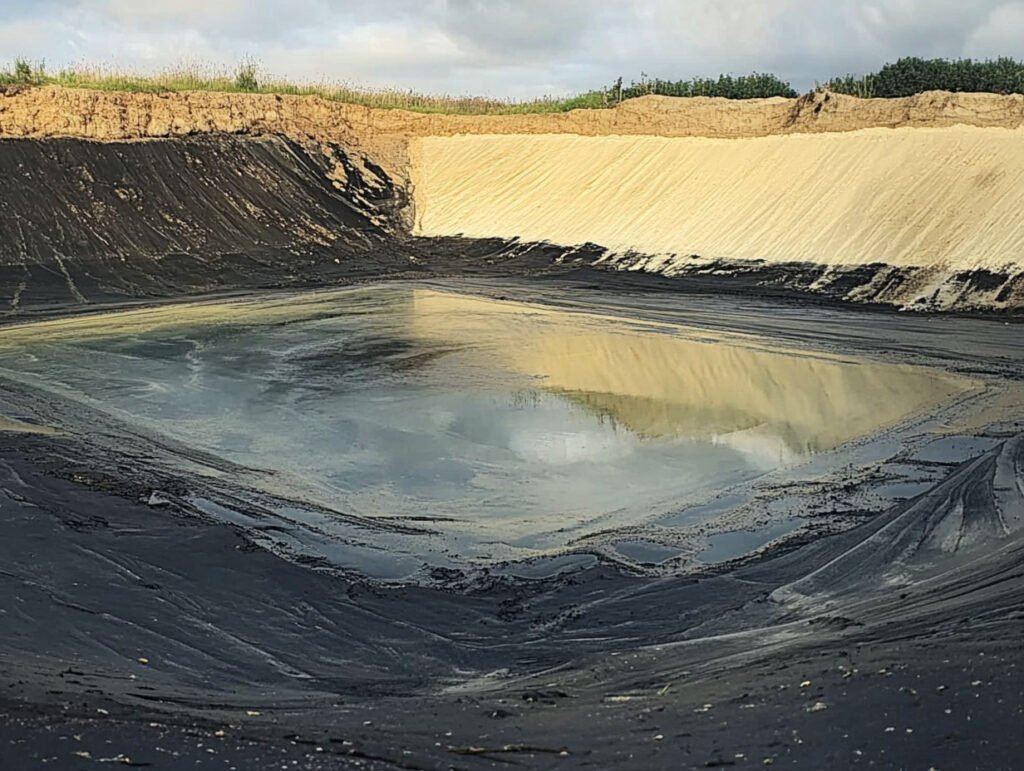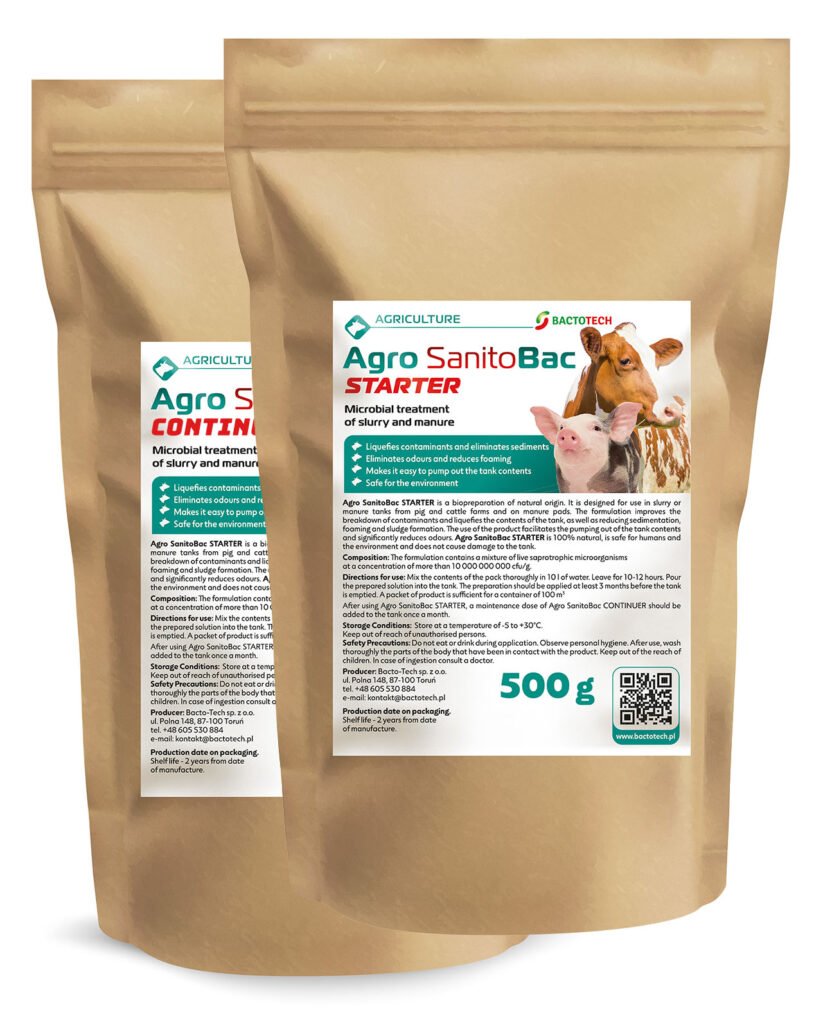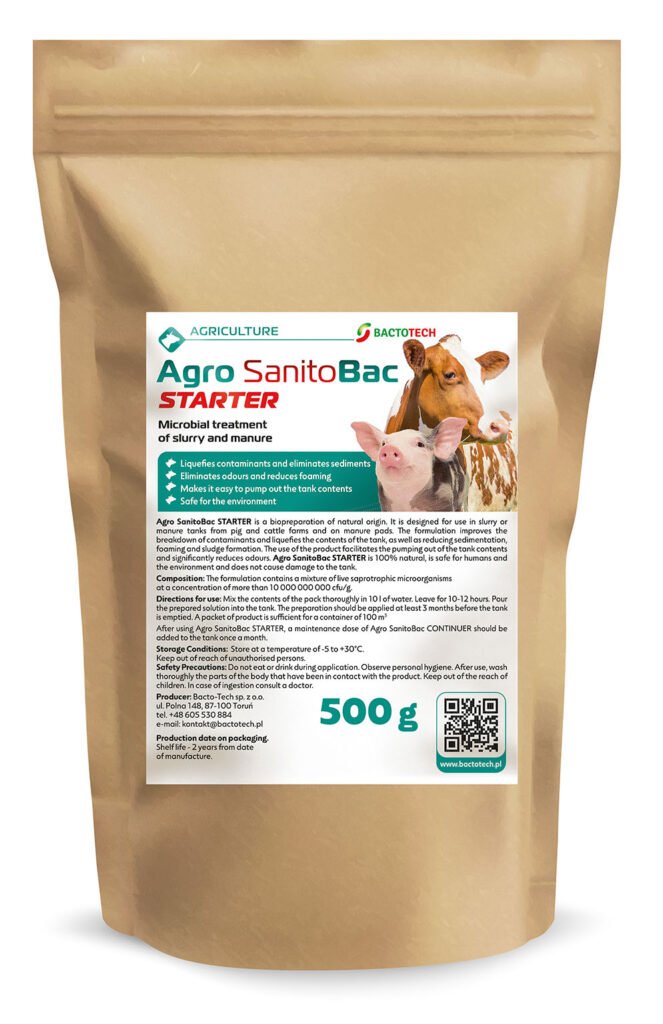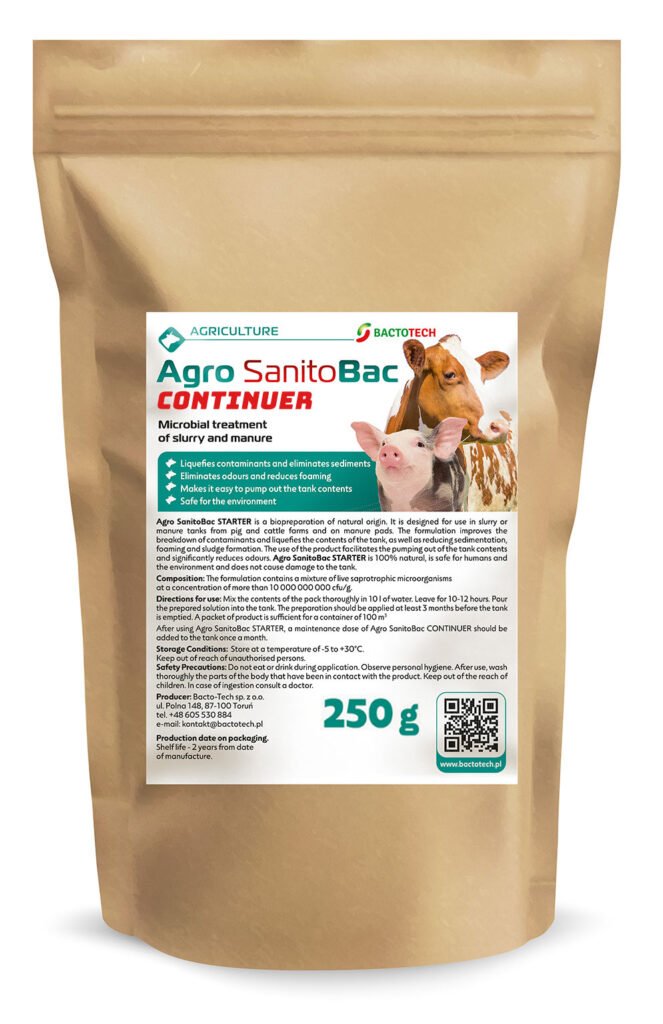Why Managing Slurry and Manure Matters Now More Than Ever
Managing slurry and manure isn’t just a routine farm task – it’s a key part of running a compliant, cost-effective, and environmentally responsible operation in today’s agricultural landscape.
In the UK, rising environmental standards and stricter regulations mean farmers need smarter, more sustainable ways to handle waste. From preventing water pollution to reducing odours and capturing valuable nutrients, how you manage slurry and manure can have a big impact on both your bottom line and the health of your land.
Cut Sludge, Odours & Costs with Smarter Slurry Solutions
Is your slurry tank working for you – or against you?
With the right bacteria, you can stop odours, prevent sludge, and turn waste into nutrient-rich fertiliser. Here’s how.
In this post, we’ll explore:
- What current UK regulations mean for your slurry storage and application
- How poor management can affect farm efficiency and compliance
- Why microbiological solutions like Agro SanitoBac STARTER and CONTINUER offer a cleaner, easier way to handle waste
- Practical steps to reduce labour, cut costs, and meet environmental goals
Let’s dig in.

Key Facts
UK farmers face strict rules on slurry storage, spreading, and emissions
Poor slurry management can lead to sludge buildup, foaming, and odours
Agro SanitoBac STARTER liquefies sludge and prepares tanks for easy emptying
Agro SanitoBac CONTINUER provides monthly maintenance to keep tanks flowing
Biopreparations reduce ammonia emissions and nitrate leaching
Farmers save on mixing costs and get more value from nutrients
Supports compliance with NVZ, Clean Air Strategy, and Farming Rules for Water
The Environmental and Regulatory Landscape
In the UK, managing slurry and manure isn’t just about what’s practical – it’s also about staying compliant.
Poorly stored or applied waste can lead to water pollution, air quality issues, and heavy penalties. That’s why farmers must follow strict rules around storage, timing, and application methods.
Here’s a breakdown of what matters most:
Nitrate Vulnerable Zones (NVZs)
Over 55% of England is classed as an NVZ – areas where nitrate pollution poses a serious risk to water quality.
If you’re in an NVZ, you must:
- Limit how much nitrogen you apply from slurry and manure
- Keep detailed records of applications
- Follow strict closed periods for spreading
Check if your farm is in an NVZ via the DEFRA NVZ maps.
Farming Rules for Water (England)
These rules apply to all farms in England, not just those in NVZs.
They require farmers to:
- Avoid applying slurry or manure to waterlogged, frozen, or snow-covered land
- Test soil every five years
- Match nutrient applications to crop needs
Learn more on the Environment Agency’s water protection rules.
Ammonia Emissions and Air Quality
According to DEFRA’s Clean Air Strategy, agriculture is the largest source of ammonia emissions in the UK.
Slurry storage and spreading are major contributors, prompting government targets to reduce emissions by 16% by 2030.
To help meet this, farmers are encouraged to:
- Use covered or improved storage systems
- Adopt low-emission spreading methods
- Reduce reliance on traditional slurry management
Explore DEFRA’s Clean Air Strategy.
Slurry Storage Construction Rules
If you’ve built or updated slurry storage since 1991, you must:
- Keep it at least 10m from watercourses
- Have 4 months’ minimum capacity
- Use impermeable materials with leakproof bunding
In Scotland, regulations are even tighter. All new or modified stores must be fully lined and guaranteed to remain impermeable for at least 20 years.
Summary:
Managing slurry and manure means understanding the law – and preparing your farm to meet it. With stricter enforcement on the rise, now is the time to review your setup and explore solutions that support both compliance and efficiency.

Common Farm Challenges with Slurry and Manure
Whether you run a large dairy operation or manage a small mixed farm, managing slurry and manure comes with its fair share of headaches. From blocked pumps to unpleasant odours, poor waste management doesn’t just risk compliance – it affects day-to-day operations and long-term profitability.
Here are the most common issues UK farmers face:
Sludge Buildup and Sedimentation
Over time, solids settle at the bottom of slurry tanks and lagoons, forming thick sludge that’s difficult to remove.
This buildup:
- Reduces storage capacity
- Increases labour and equipment wear during emptying
- Makes uniform application nearly impossible
Odour Problems and Community Complaints
Unmanaged slurry can produce strong, persistent smells – especially in warmer months or near residential areas.
This leads to:
- Complaints from neighbours or local councils
- Pressure to reduce spreading or change timing
- Strained public relations with the local community
Foaming and Blockages
Foaming can occur during mixing or pumping, leading to:
- Overflow risks
- Increased time and labour
- Damaged equipment or safety concerns
Nutrient Loss and Inefficient Fertilisation
When slurry isn’t properly managed:
- Nutrients are lost to the air (ammonia) or through runoff
- Soil receives uneven or insufficient fertilisation
- Yields and crop quality can decline
Increased Risk of Non-Compliance
Slurry-related problems aren’t just inconvenient – they can breach regulations and result in:
- Penalties or fines from the Environment Agency
- Disruption to farm operations
- Ineligibility for grant schemes or environmental subsidies
Bottom line: Without a solid management system in place, slurry quickly shifts from resource to liability.
Next, we’ll explore how microbiological biopreparations offer a clean, effective way to prevent these issues before they start.

How Biopreparations Help: The Agro SanitoBac System
Traditional slurry management often relies on mechanical mixing, regular emptying, and reactive fixes when problems arise. But what if you could stop issues like sludge buildup, odour, and foaming before they start?
That’s exactly what the Agro SanitoBac system is designed to do.
Using live, beneficial bacteria, Agro SanitoBac products help farmers take a proactive approach to managing slurry and manure, turning waste into a more manageable – and valuable – resource.
What Are Biopreparations?
Biopreparations are microbiological products made from carefully selected strains of live, naturally occurring bacteria.
These bacteria:
- Break down organic waste in slurry and manure
- Liquefy solids and sediments, making pumping easier
- Reduce foaming, crusting, and foul odours
- Convert nutrients into plant-available forms for improved soil fertilisation
The Agro SanitoBac System: Two-Phase Treatment
Agro SanitoBac products are designed to work in two steps:
- STARTER – A one-off, powerful inoculation that kickstarts microbial activity and liquefies accumulated waste
- CONTINUER – A monthly maintenance treatment that keeps the system active and efficient
Together, they create a low-labour, high-efficiency approach that helps farms stay compliant while saving time and money.
Why Go Microbial?
- Reduce the need for intensive mechanical mixing
- Improve pumpability and reduce wear on equipment
- Keep storage capacity high and odour low
- Enhance nutrient value of slurry for fertilisation
- Stay ahead of regulations without adding complexity
Next, we’ll take a closer look at Agro SanitoBac STARTER and how to use it effectively on your farm.

Product Spotlight: Agro SanitoBac STARTER
When it comes to managing slurry and manure, the first treatment sets the tone for the entire season. That’s where Agro SanitoBac STARTER comes in – a high-strength microbial preparation that prepares your slurry tank for easier, cleaner, and more efficient operation.
What It Does
Agro SanitoBac STARTER introduces a concentrated dose of saprotrophic bacteria into your slurry or manure tank. These bacteria begin breaking down solid waste immediately, helping to:
- Liquefy sludge and crusted material
- Reduce foul odours that can cause neighbour complaints
- Make tank contents easier to pump
- Improve nutrient distribution for field application
Ideal For:
- Cattle farms
- Pig farms
- Any livestock operation with large slurry or manure tanks
It’s especially useful before the first emptying of the year or when restarting a neglected or underperforming tank.
How to Use Agro SanitoBac STARTER:
- Mix with water in a clean container (non-chlorinated, if possible).
- Let the mixture stand for 10–12 hours to activate the bacteria.
- Pour the solution into your tank.
- One packet treats up to 100 m³ of slurry or manure.
Timing Tip: For best results, apply Agro SanitoBac STARTER around 3 months before you plan to empty the tank.
Results You’ll Notice:
- Reduced sludge and sediment
- Less foaming during mixing
- Easier, faster pumping
- Better compliance with water and air regulations
Next, we’ll look at how Agro SanitoBac CONTINUER keeps your tank in top shape month after month.

Product Spotlight: Agro SanitoBac CONTINUER
Once your slurry tank is active and flowing smoothly, the next step is keeping it that way. That’s where Agro SanitoBac CONTINUER comes in – your monthly maintenance solution for stress-free, compliant slurry management all year round.
Why Ongoing Treatment Matters
Without consistent care, even a well-treated tank can start to develop:
- New sludge layers
- Persistent foaming
- Reduced pumpability and storage volume
Agro SanitoBac CONTINUER maintains the balance by replenishing active bacteria that keep your tank healthy and fluid.
What It Does
CONTINUER introduces a fresh dose of high-concentration live microbes every month. These bacteria:
- Continue breaking down solids
- Prevent the buildup of crusts and sediment
- Minimise odours and foaming
- Ensure nutrients stay plant-available for field use
How to Use Agro SanitoBac CONTINUER:
- Dissolve the product in water
- Let it stand for 10–12 hours
- Add directly to the slurry or manure tank
Each monthly treatment also covers up to 100 m³, just like the STARTER.
Pro tip: Apply CONTINUER consistently once a month – especially in colder months or when the tank isn’t being emptied regularly.
Benefits You’ll See Month After Month:
- Consistent slurry consistency
- No need for mechanical agitation before every emptying
- Lower energy use and reduced equipment wear
- Improved storage capacity and easier spreading
- Peace of mind for compliance and inspections
Next, we’ll explore how these products don’t just save time – they also bring real environmental and financial benefits to your farm.
Environmental & Economic Benefits for Farmers
Investing in better ways of managing slurry and manure isn’t just about staying compliant – it’s about creating a more efficient, profitable, and environmentally responsible farm.
Here’s how biopreparations like Agro SanitoBac STARTER and CONTINUER help you achieve all three:
Cut Operational Costs
- Less mechanical mixing: Reduced need for energy-intensive agitation saves time, fuel, and wear on equipment
- Easier pumping: No more dealing with thick sludge or blocked pipes
- Lower fertiliser bills: Nutrients are better preserved and more plant-available, reducing the need for synthetic inputs
Boost Soil & Crop Performance
- Nutrients in well-managed slurry are more readily absorbed by crops
- Application becomes more uniform and targeted
- Better nutrient uptake leads to healthier plants and improved yields
Reduce Environmental Impact
- Less ammonia release means better air quality and fewer complaints
- Lower risk of nitrate leaching into watercourses
- Supports DEFRA’s Clean Air Strategy and Farming Rules for Water
Improve Compliance and Peace of Mind
- Stay within regulations for NVZs, slurry storage, and spreading periods
- Reduce risk of penalties, failed inspections, or grant ineligibility
- Position your farm as a leader in sustainable waste management
In short: With the Agro SanitoBac system, you’re not just managing waste – you’re unlocking value.
Conclusion: Smarter Slurry Management Starts Here
Slurry and manure don’t have to be a burden. With the right strategy and the power of microbial biopreparations, UK farmers can turn waste into a valuable, manageable resource.
From reducing odours and sludge to cutting compliance headaches and fertiliser bills, Agro SanitoBac STARTER and CONTINUER help make managing slurry and manure easier, cleaner, and far more effective.
Ready to take control of your tank?
Learn more about the Agro SanitoBac system here:
https://bactotech.co.uk/agro-sanitobac-starter-and-continuer
Want to order or request a custom solution? GET IN TOUCH
Follow us on Instagram for real-life tips and farmer stories
Or speak to one of our team – we’re here to help you manage waste, naturally.
Better slurry management. Stronger soils. A cleaner farm future.
Let’s get started.
Additional Resources
To learn more about the benefits of microbiological treatments and responsible manure management, visit:
– The NFU’s slurry management resource page for practical insights and updates on government grants.
– The Agricultural Waste Regulations for comprehensive information on waste management compliance.







